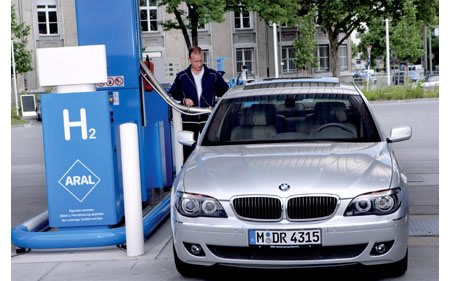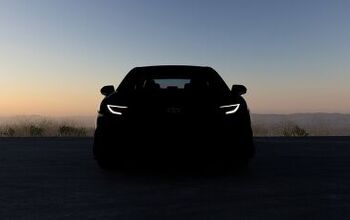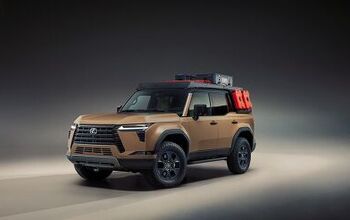BMW And GM Cooperate On Hydrogen Car

At the Tokyo Motor Show, the announcement that Toyota and BMW are in cahoots over batteries, diesel engines and possibly more was the talk of the show. Back in Bavaria, BMW displays a promiscuous bent. BMW will cooperate with GM, yes GM, on fuel cells. This at least if the German magazine Wirtschaftswoche is correctly informed.
Sources told Wirtschaftswoche that a cooperation between BMW and GM is as good as done.
BMW has no comment, but confirms that there are negotiations with GM. BMW is not known for its fuel cell prowess. According to the information of Wirtschaftswoche, highly profitable BMW will share the cost of fuel cell development with GM, and will be supplied with hydrogen-powered fuel cells by GM.
The on-again, off-again hydrogen fuel cell is definitely on again. In our interview a month ago, Toyota’s chief for new technologies, Satoshi Ogiso, confirmed that the technology is ready for prime time, the only remaining problem is cost. Toyota will launch a mass produced fuel cell car in 2015. Ogiso promised it will be affordable by 2020. GM is looking back at a long history of fuel cell development and will also sell a hydrogen-powered car by 2015. So will Hyundai. Nissan (cooperating with hydrogen-pioneer Daimler) likewise signaled that it will not place a single bet on EVs, and that fuel cell cars are in the cards. BMW once had planned to launch an ICE that runs on hydrogen (see above), but that idea, well, bombed.

Bertel Schmitt comes back to journalism after taking a 35 year break in advertising and marketing. He ran and owned advertising agencies in Duesseldorf, Germany, and New York City. Volkswagen A.G. was Bertel's most important corporate account. Schmitt's advertising and marketing career touched many corners of the industry with a special focus on automotive products and services. Since 2004, he lives in Japan and China with his wife <a href="http://www.tomokoandbertel.com"> Tomoko </a>. Bertel Schmitt is a founding board member of the <a href="http://www.offshoresuperseries.com"> Offshore Super Series </a>, an American offshore powerboat racing organization. He is co-owner of the racing team Typhoon.
More by Bertel Schmitt


































Comments
Join the conversation
Wolfgang Reitzle (the former BMW car guy, now at Linde) will certainly like this development direction.
For the life of me, I cannot see hydrogen being practical.
Quite a few warehouses are converting their fork lifts from battery power to fuel cells. So it is happening on a smaller and controlled scale. Will it lead to transportation aps? We will see. www.plugpower.com
More practical than gaseous H2 in a tank is liquid methanol (wood alcohol) or NG used in a Solid Oxide Fuel Cell (SOFC) to generate electricity for a small battery EREV. Something like a Volt with perhaps 10-20 miles of range.. that would give enough time for the SOFC to light off. Eventually cheap 200 mile BEVs will come about and suddenly ICE powered cars will get rare. Methanol is extremely cheap and easy to make, it can be made from our plentiful NG with a about a 20% loss in energy, you can also use ethanol but its much more expensive. The famous Bloom box is an example of a SOFC. Wikipedia has a good article on the subject and its issues. In the short term its hard to beat the practicality of a small ICE (perhaps burning methanol) to produce electricity for a car.